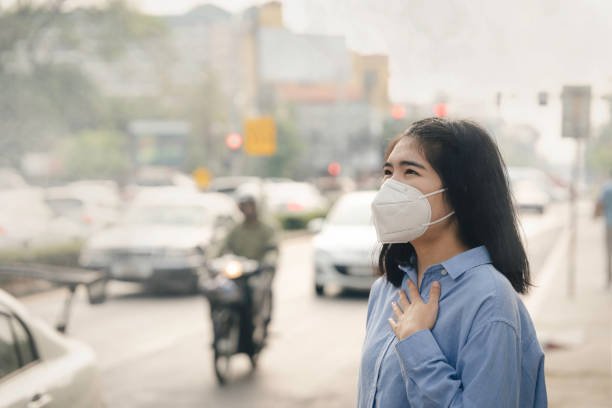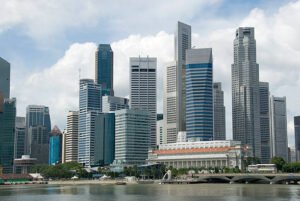N95 Mask Face masks have become a common weapon in the armory against viral transmission since the COVID-19 epidemic. The N95 respirator is a popular choice among masks because of its excellent performance as a barrier against airborne particles. But there appears to be a widespread misperception about its effectiveness, especially in terms of dust prevention. In this post, we explore the science underlying the N95 mask and discuss if it really offers 100% dust protection.
Comprehending the N95 Mask
N95 Mask 100% Effective in Protecting Against Dust?

Facebook
Twitter
LinkedIn
Table of Contents
Understanding the N95 musk
The N95 respirator gets its name from the fact that it can filter out at least 95% of airborne particles, including bacterium and virus-containing droplets. Its purpose is to create a tight seal around the wearer’s lips and nose so that the air breathed in is filtered through the mask material. This filtration efficiency is achieved through a combination of electrostatic attraction, mechanical filtration, and particle interception within the mask’s layers.


N95 mask how to use properly
It is very important to know how to use properly n95 mask. The proper use of an N95 mask is crucial for effective protection against airborne particles, including viruses and pollutants. Firstly, ensure a snug fit by pressing the mask firmly against your face, covering both nose and mouth. Perform a fit check by exhaling sharply; if air leaks around the edges, readjust the mask or choose a different size. Avoid touching the mask while wearing it, and if you do, sanitize your hands immediately. Replace the mask if it becomes wet, damaged, or difficult to breathe through. Remember to discard used masks properly and wash your hands thoroughly after removal. Prioritize safety and follow guidelines
Watch this video to understanding how to use N95 mask properly.
Effectiveness Against Dust
The N95 mask is quite effective in removing the majority of airborne particles, even those as small as 0.3 microns, although it is not perfect. There are many sizes of dust particles; some are bigger and noticeable, while others are tiny and may pass right through traditional masks. The following variables affect how well the N95 mask blocks dust:
1. Particle Size: The N95 mask works best against particles bigger than 0.3 microns, as previously noted. Its efficiency declines with decreasing particle size, even if it can still filter out tiny particles to some extent. The N95 mask’s ability to filter out ultrafine dust particles might be hampered by particles prevalent in industrial or contaminated areas.
2. Seal and Fit: How well the N95 mask works heavily relies on proper fit and seal. Even a tiny gap between the mask and the wearer’s face can allow dust particles to bypass the filtration mechanism. Achieving a secure seal requires proper fitting of the mask and adherence to wearing instructions provided by manufacturers.
3. Length of Use: As the N95 mask’s filter clogs with particles over time, its effectiveness may decrease. For the mask to continue providing the best possible defense against dust and other airborne pollutants, regular inspection and replacement are necessary.
4. User characteristics: The seal and general efficacy of the N95 mask can be impacted by individual characteristics such as facial hair, face structure, and respiratory disorders. Wearing a N95 mask for lengthy periods of time may be problematic for those who have respiratory problems or difficulties breathing.
Real-World Applications
In real-world scenarios, the effectiveness of the N95 mask against dust may vary depending on the specific environment and usage conditions. In healthcare settings, where the N95 mask is primarily used to protect against infectious diseases, its efficacy is well-documented. However, in industrial settings where exposure to dust is a concern, additional precautions such as ventilation systems and personal protective equipment may be necessary to complement mask usage.
Limitations and Considerations
While the N95 mask offers significant protection against airborne particles, it is essential to recognize its limitations and use it appropriately:
1. Not 100% Protection: The N95 mask does not offer 100% protection against all types of dust particles, even with its excellent filtering effectiveness. Users must to be cautious and take extra precautions, such wearing extra protective gear or avoiding dusty areas whenever feasible.
2. Single-Use vs. Reusable: There are two types of N95 masks: single-use and reusable. Reusing single-use masks might reduce their efficacy because they are meant to be thrown away after usage. Conversely, in order to provide continuous protection, reusable masks need to be cleaned and maintained properly.
3. Fit Testing: To guarantee that the N95 mask creates a tight seal around the wearer’s face, proper fit testing is essential. This entails checking the seal each time the mask is put on and undergoing fit testing to determine the appropriate mask size and model for individual users.
4. Regulatory Standards: Not all masks labeled as “N95” meet the same standards of filtration efficiency and performance. It is essential to source N95 masks from reputable manufacturers that adhere to regulatory standards and undergo rigorous testing.
Buying Guide :
If you want to know more about and if want buy this is a good Quality you can check here and Buy
conclusion
In conclusion, the N95 mask has a limited ability to block dust even though it is quite good at removing germs and viruses from the air. Its efficacy in practical applications is mostly dependent on factors including particle size, fit and seal, usage length, and user concerns. It is essential to recognize the limitations of the N95 mask and use extra protective gear as needed to ensure that one is adequately protected against dust and other airborne pollutants. Protecting against respiratory dangers requires careful use, upkeep, and adherence to safety regulations, just as with any other personal protective equipment.
Safety Related News Everyday
100% Free to Join
Get up to 80% discount from Singapore Businesses
10,000+ subscribers About Me

Sharif Mahmud
Hello , I am Sharif Mahmud (Safety Coordinator in Singapore Around 12 years work experience . Thank you so much for visit our site ………. more details >>
Recent posts
-

Best Comprehensive Construction Safety Guide for Workers 2025
Sharif Mahmud February 23, 2025 BLOG -

Safety in Singapore for Travelers in 2024? Tips & Tricks
Sharif Mahmud June 29, 2024 BLOG -

Low Price Hotels in Singapore- Affordable Stays for Every Traveler
Sharif Mahmud June 28, 2024 BLOG -

Best Popular Hotels in Singapore for Luxury and Comfort in 2024
Sharif Mahmud June 27, 2024 BLOG -

The Best Custom T-Shirt Uniform Designs for Companies staffs at 2024
Sharif Mahmud June 23, 2024 BLOG -

7 Most Trusted Construction Safety Products Review of 2024
Sharif Mahmud June 11, 2024 BLOG -

Top 10 Beautiful place in Singapore.You can visit
Sharif Mahmud June 9, 2024 BLOG -

10 Exceptional Unique Buildings in Singapore Worth Visiting
Sharif Mahmud June 8, 2024 BLOG -

Best Drill Machine for construction works in 2024
Sharif Mahmud June 7, 2024 BLOG -

Why Do We Need First Aid Kit in Construction Sites in 2024
Sharif Mahmud June 6, 2024 BLOG
Posted By

Sharif Mahmud
Hi, I am Sharif Mahmud (Safety Coordinator) Here you can learning about safety
-
 11 Jun 20247 Most Trusted Construction Safety Products Review of 2024
11 Jun 20247 Most Trusted Construction Safety Products Review of 2024 -
 23 Jun 2024The Best Custom T-Shirt Uniform Designs for Companies staffs at 2024
23 Jun 2024The Best Custom T-Shirt Uniform Designs for Companies staffs at 2024 -
 03 Jun 2024Singapore construction Safety Unlimited Guide in 2024
03 Jun 2024Singapore construction Safety Unlimited Guide in 2024 -
 06 Jun 2024Best Helmet Cameras for Constraction site at 2024
06 Jun 2024Best Helmet Cameras for Constraction site at 2024 -
 11 Mar 2024Baby eye injury how to protect Top 3 Reason
11 Mar 2024Baby eye injury how to protect Top 3 Reason


1 thought on “N95 Mask 100% Effective in Protecting Against Dust?”
Thank you for your sharing. I am worried that I lack creative ideas. It is your article that makes me full of hope. Thank you. But, I have a question, can you help me? https://www.binance.com/uk-UA/register?ref=W0BCQMF1